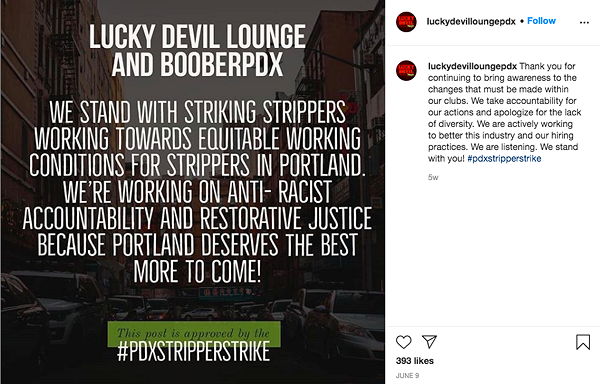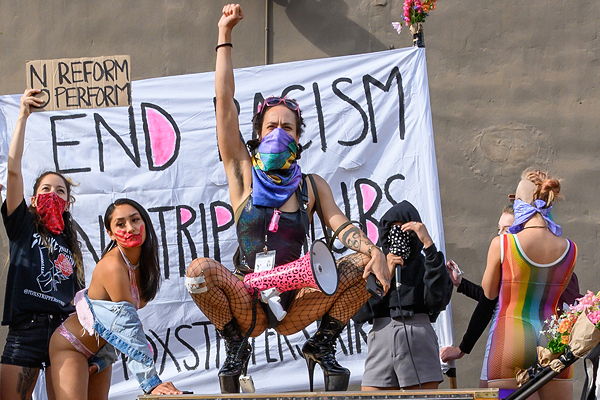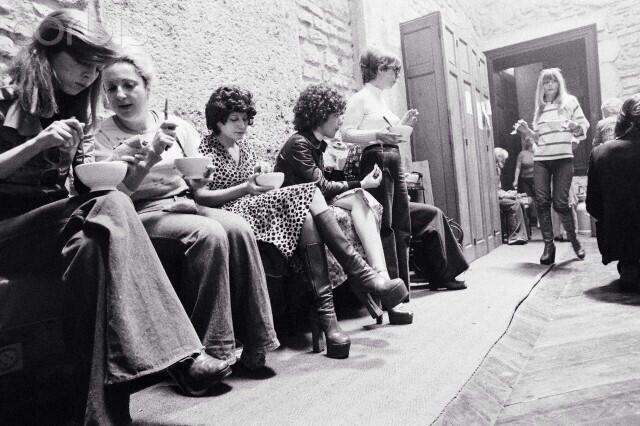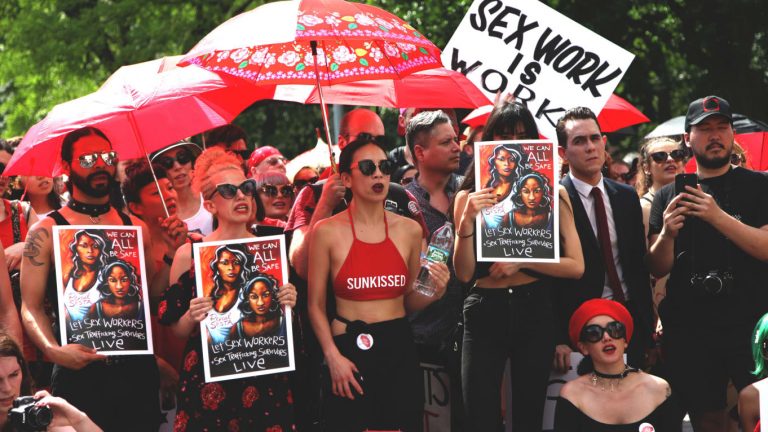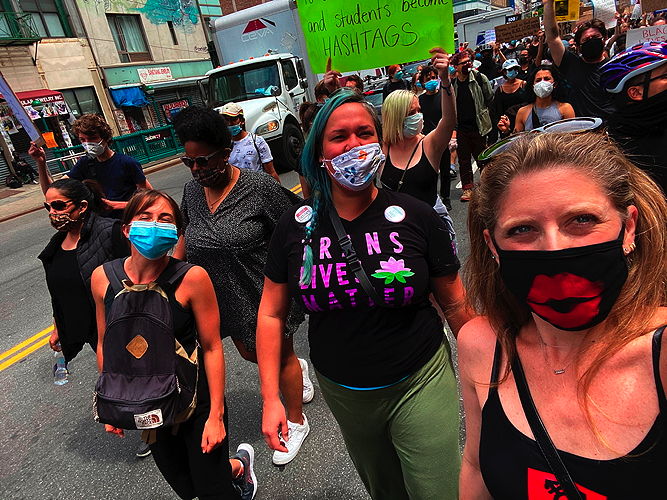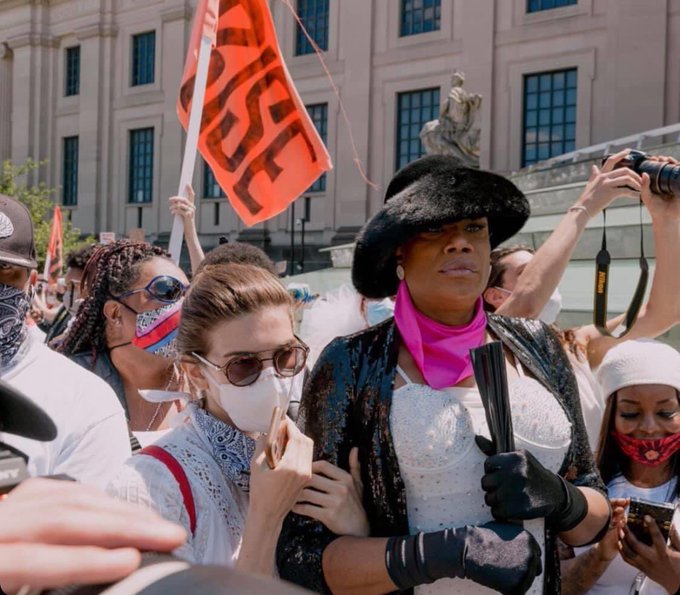June 22, 2020
The Seattle City Council unanimously voted to strike prostitution and drug traffic loitering laws from the city code. The decision is a decisive win for racial justice, human rights, and equity, one that DSW and other sex worker rights advocates are working hard to replicate in New York state.
Repeals were based on the findings of the Seattle Reentry Workgroup, a study conducted by criminal justice experts and impacted individuals in 2018 to examine how the city could better support people exiting the criminal justice system and cut down on inequities. The decision was endorsed by City Attorney Pete Holmes, whose office stopped prosecuting loitering crimes in 2018. Holmes said he has “long questioned the use of loitering crimes as a law enforcement tool, and [is] grateful that the 2018 Reentry Workgroup helped shine a light on their racist origins.”
Loitering for the Purpose of Prostitution is a violation or misdemeanor in multiple states and municipalities across the U.S. Statutes often define the charge generally, as wandering, remaining, or spending time in a public space* with the intention of committing a prostitution offense or promoting prostitution. Broad definitions allow police officers to target transgender and cisgender women of color for being in certain spaces based on how they dress or what they look like. Councilmember Andrew Lewis, who introduced and sponsored the repeal of both laws, views the ordinance as “an excuse to racially profile community members who had done nothing wrong.” Fellow Seattle Councilmember Alex Pederson celebrated the repeals as part of the city's effort to react and respond to the national conversation about police and structural racism in America.
SWOP Seattle, a chapter of the national Sex Workers’ Outreach Project, tweeted following the passage of the law: “Today Seattle City Council repealed drug and prostitution loitering laws that endangered SW safety, unjustly targeted non-violent peoples, and disproportionately impacted our most vulnerable communities. Today we celebrate.”
A bill to repeal Loitering for the Purpose of Prostitution in New York state, also known as Walking While Trans, is up for a vote this legislative session. S2253 (Hoylman)/A654 (Paulin) will hopefully bring the same safety and equity to New Yorkers. Over one hundred state organizations, including the New York Civil Liberties Union, Brooklyn Defenders, and Safe Horizon, have endorsed the repeal. District attorneys across the country, including in Manhattan and San Francisco, have stopped prosecuting the charge. Data supports that, where and when it is implemented, Walking While Trans is targeted and discriminatory. In order to truly support safety and justice for women of color in New York, particularly transgender women, New York must repeal the ban on Walking While Trans.
If you are a New York resident, please consider reaching out to your State Senator or Assemblymember to express your support for S2254/A654.
*For example, under New Jersey law, this behavior is prohibited in any “public place,” defined as any place to which the public has access, including but not limited to any public street, sidewalk, bridge, alley, plaza, park, boardwalk, driveway, parking lot or transportation facility, public library, or the doorways and entranceways to any building which fronts on any of the aforesaid places, or a motor vehicle in or on any such place.
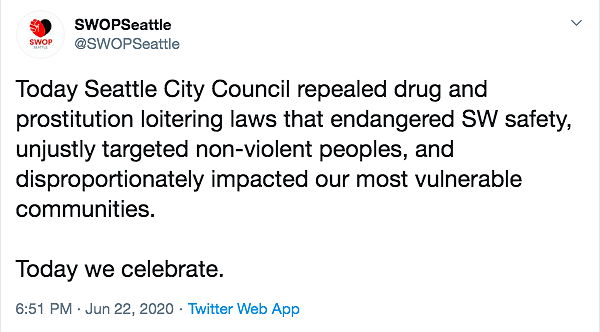
SWOP Seattle tweeted about the historic victory for human rights in their city. (Photo: Twitter, 2020)
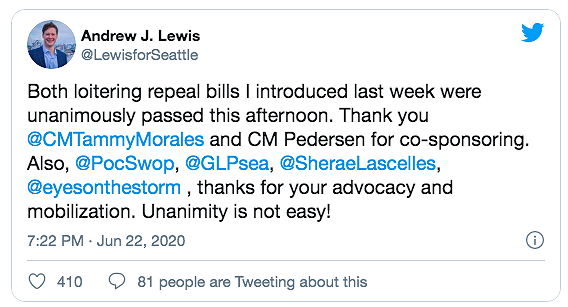
Councilmember Andrew Lewis sponsored the legislation. (Photo: Twitter, 2020)
DSW Newsletter #16 (July 2020)
Hero of the Month: Portland-based stripper and sex worker rights activist Cat Hollis is demanding fair treatment for Black sex workers
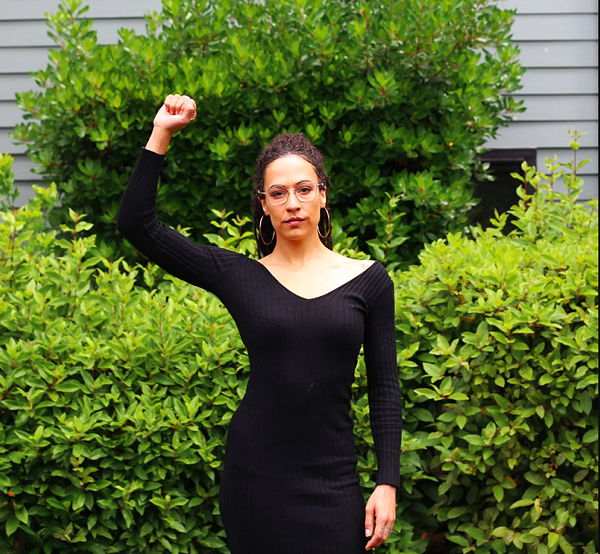
A New Bill Threatening Free Speech and Online Security Passes the U.S. Senate Judiciary Committee

DSW Supports Criminal Justice Reform Bills in New York
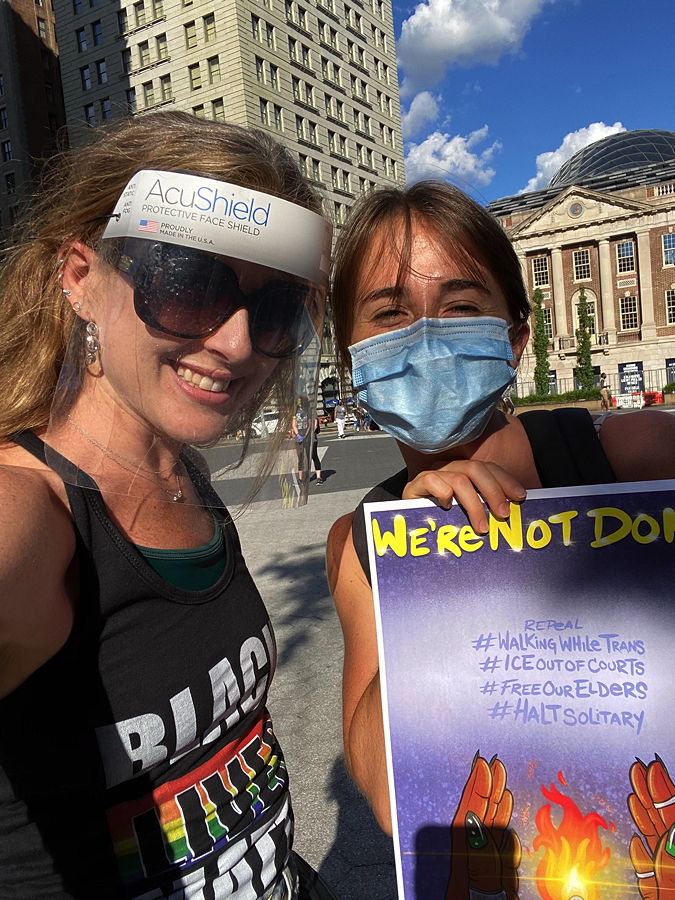
A Victory Against Loitering Statutes in Seattle

Fighting and Winning: Ceyenne Doroshow and the state of TGNCNB rights
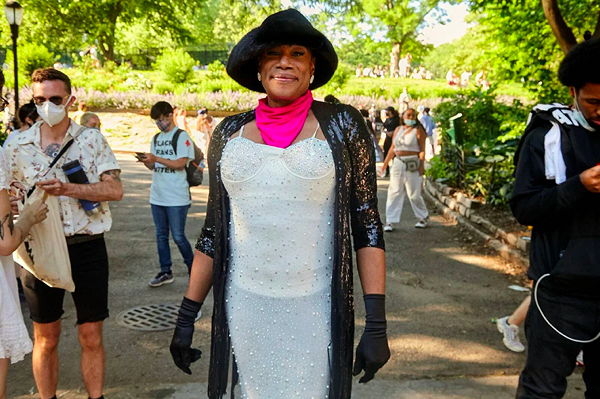
 Hero of the Month: Portland-based stripper...
Hero of the Month: Portland-based stripper...
 A New Bill Threatening Free Speech...
A New Bill Threatening Free Speech...
 DSW Supports Criminal Justice Reform Bills...
DSW Supports Criminal Justice Reform Bills...
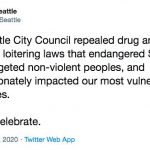 A Victory Against Loitering Statutes in...
A Victory Against Loitering Statutes in...
 Fighting and Winning: Ceyenne Doroshow and...
Fighting and Winning: Ceyenne Doroshow and...

